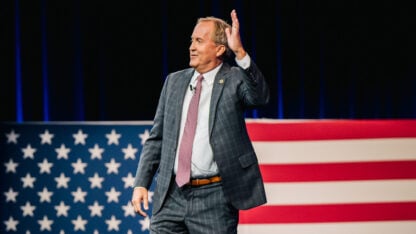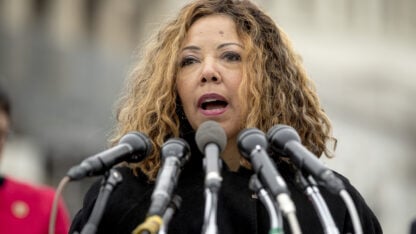Welcome back, Georgia lawmakers. The state budget is in tatters; Georgians continue to die from COVID-19; demonstrators are in the street protesting police brutality and racial injustice; and many voters sweated through hours in line to vote last week. The General Assembly has 11 business days beginning Monday to decide what to do about those issues. Plus, there’s other unfinished business from mid-March, when House and Senate members hightailed it out of the state Capitol for fear of spreading the coronavirus.
And don’t forget, it’s an election year for every legislative position.
Things will be strange in a Capitol trying to enforce social distancing. Rope lines outside the chambers, normally clotted with lobbyists and citizens bending the ear of lawmakers, will be closed off with curtains to prevent crowds. House Speaker David Ralston said he believes the chambers will handle less legislation than normal because each vote will take longer.
“I think the process is not going to be as quick as you would expect to see in the final days of the session,” the Blue Ridge Republican said Friday.
A march was also set to be held outside the Capitol Monday morning seeking, in part, an end to police brutality and changes to the state’s criminal justice system.
As all that unfolds, here’s a look at what’s on the table for lawmakers.
BUDGET
With only 16 days from Monday until the new budget year begins on July 1, the most pressing task for lawmakers will be patching together a state budget. When they left town in March, the main wrangling was over whether there would be a pay raise for teachers or a further cut in the state income tax. Now, with the economic nosedive that accompanied the COVID-19 pandemic, Republican Gov. Brian Kemp is warning agencies to expect 11% cuts, a revenue decline of more than $2.5 billion. That’s enough to spark layoffs, unpaid furloughs and service reductions for state agencies and K-12 schools, but is better than the 14% Kemp warned of earlier.
Lawmakers must decide if they will cut across the board or protect priority areas such as K-12 education and public health. Many agencies hollowed out during the recession never fully recovered, meaning there’s little left to trim.
Kemp has yet to officially issue a revised revenue estimate telling lawmakers how much they have to spend. Some lawmakers and outside advocates want to increase taxes on tobacco products and eliminate tax breaks, arguing the state should seek more revenue.
COVID-19 LIABILITY
Business groups seek a bill to exempt businesses from being sued if a customer or employee becomes sickened with COVID-19. Kemp already exempted hospitals and medical professionals from liability by executive order, but protections run out when Kemp’s emergency powers expire. The idea is that businesses would be exempt from suits if they follow federal, state and local guidelines, but might still be liable if they don’t.
“No one can operate in a society with the threat of lawsuits hanging over their head,” Republican Lt. Gov. Geoff Duncan wrote in the Atlanta Business Chronicle.
HATE CRIMES
The heat is on senators to advance hate crimes legislation that sits stalled in the Senate Judiciary Committee, following the death of Ahmaud Arbery, a 25-year-old black man fatally shot while running through a mostly white neighborhood near Brunswick in February.
House Bill 426 would impose additional penalties for crimes motivated by a victim’s race, religion, sexual orientation, gender or other factors. The House passed the bill more than a year ago.
Ralston has declared it a priority, and his spokesman has said the speaker wants the bill sent to Kemp “with no delay and no amendment.”
It’s the “no amendment” part that may be tricky. Duncan, who presides over the state Senate, wants to make changes. House proponents worry that with precious few legislative days remaining, changes could sink the bill.
POLICE AND JUSTICE
Democrats propose a broad slate of other changes to policing in addition to a state hate crimes law. For example, they propose ending police officers’ qualified immunity from lawsuits. Other ideas include repealing laws allowing citizens to arrest suspected felons and to use force when threatened without first trying to retreat.
While repealing Georgia’s citizens arrest law has some bipartisan support, other proposals appear unlikely to win approval from majority Republicans.
House Minority Leader Bob Trammell, a Luthersville Democrat, said Friday that lawmakers have “the opportunity and time to get it done. The question is, do we have the political will for it.”
“For the General Assembly to turn a deaf ear to the cries that are occurring all over Georgia and throughout the country,” Trammell said, referring to nationwide protests of police brutality, “would be a tragic missed opportunity and a dereliction of responsibility.”
VOTING
Primary elections on Tuesday drew a national spotlight on Georgia — and not in a good way.
A lack of poll workers, trouble with new voting equipment, coronavirus restrictions and high turnout contributed to long lines, with 20 of Georgia’s 159 counties extending voting hours for at least one precinct.
Ralston has ordered the House Governmental Affairs Committee to investigate. Secretary of State Brad Raffensperger, a Republican and Georgia’s chief election officer, seeks legislation letting him “directly intervene and require management changes” in counties.
Senate Bill 463, a Republican-backed measure passed by the Senate in March, could be a target for amendments. Its proposed election law changes include letting county election officials decide how many voting machines they’ll need for certain elections.
Democrats, some of whom mostly blame Raffensperger for issues Tuesday, are likely to have different ideas.
For a deeper exploration of Ahmaud Arbery’s story, listen to WABE’s podcast, “Buried Truths.” Hosted by journalist, professor, and Pulitzer-prize-winning author Hank Klibanoff, season three of “Buried Truths” explores the Arbery murder and its direct ties to racially motivated murders of the past in Georgia.









